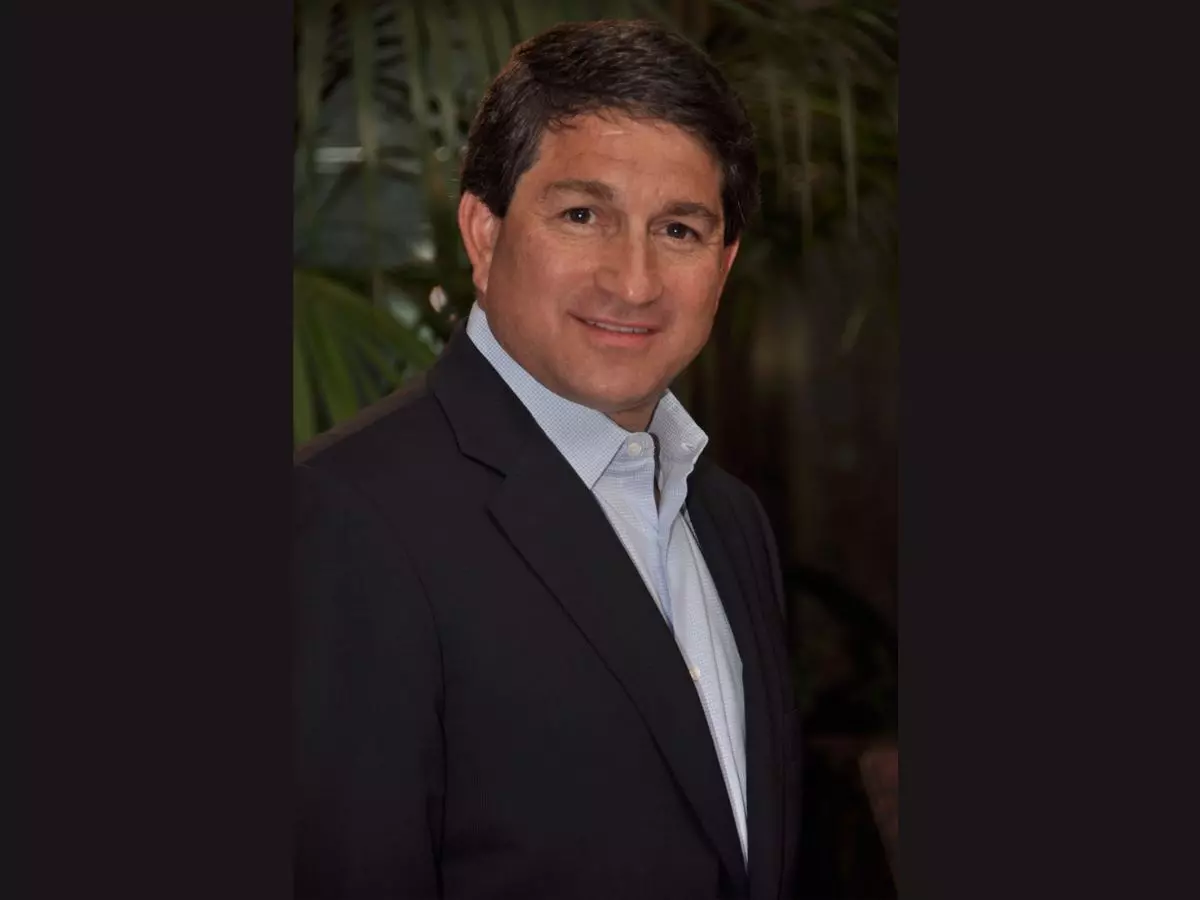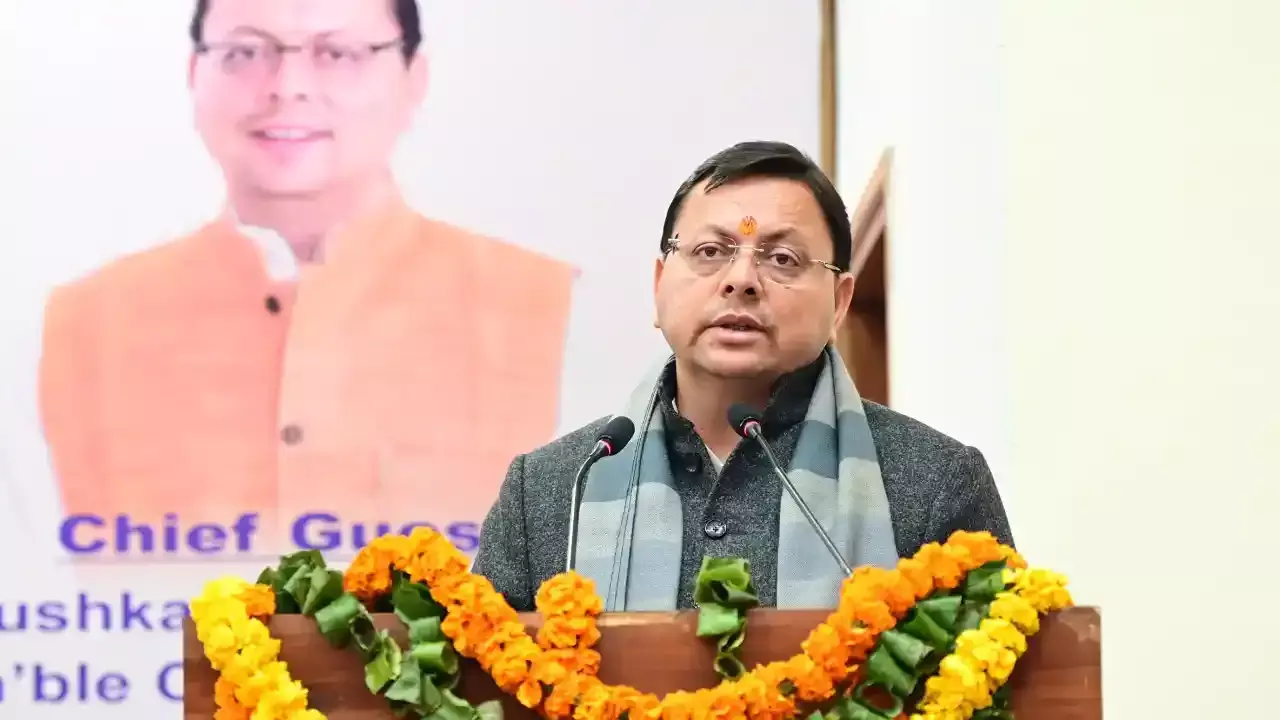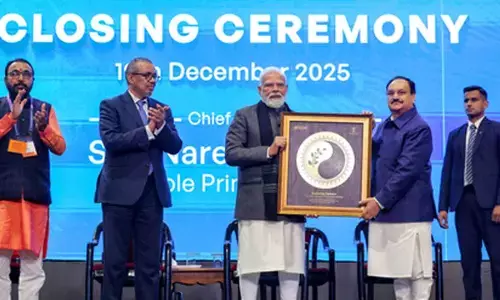Steve Papermaster's Vision: Cultivating a Global Talent Pool for the AI-Driven Future of Work

New Delhi (India) : As the world rapidly embraces the transformative power of artificial intelligence (AI), one fundamental question looms large: Are we adequately preparing our workforce for the seismic shifts that lie ahead? In an exclusive interview, Steve Papermaster, a seasoned entrepreneur and visionary leader, offers his insights on this critical issue, stressing the need for global collaboration in developing the necessary skills to thrive in the AI-driven future of work.
With over four decades of experience at the forefront of innovation, Papermaster has witnessed firsthand the disruptive impact of technology on industries and job markets. His latest venture, the Powershift Group, has been at the vanguard of nurturing sustainable, forward-thinking companies, underscoring his deep understanding of the ever-evolving business landscape.
"The rise of AI is poised to reshape the job market in ways we've never seen before," Papermaster asserts. "While this transformation presents incredible opportunities, it also poses significant challenges in terms of reskilling and upskilling our global workforce."
According to Papermaster, the key to navigating this transition lies in recognizing the unique advantages offered by different regions and fostering cross-border collaboration to harness their collective strengths. "No single country or region can tackle this challenge alone," he explains. "We must leverage the diverse talent pools and educational resources from around the world to build a workforce equipped to thrive in the AI age."
One region that Papermaster believes holds immense potential is India, with its large, young population and a burgeoning focus on STEM (Science, Technology, Engineering, and Mathematics) education. "India's intellectual capital is a driving force for innovation," he notes. "By investing in AI-focused educational programs and nurturing this talent pool, India can position itself as a global hub for the development and deployment of AI solutions."
Papermaster envisions a future where Indian universities and research institutions collaborate with their international counterparts, fostering an exchange of knowledge and best practices in AI education. "Imagine joint degree programs or virtual classrooms that bring together students and faculty from around the world, creating a truly global learning experience," he says.
While India's homegrown talent pool is a significant asset, Paper master also recognizes the unique advantages offered by the Gulf region in attracting and retaining skilled professionals from around the world. "The Gulf states have made remarkable strides in positioning themselves as global hubs for talent, offering attractive incentives and world-class infrastructure," he notes.
Papermaster sees an opportunity for the Gulf region to leverage this talent pool and become a hub for AI training and upskilling initiatives. "By partnering with leading educational institutions and technology companies, the Gulf can create specialized AI training programs tailored to the needs of various industries," he explains. "This could not only address local workforce demands but also attract talent from across the globe, fostering a truly diverse and dynamic AI ecosystem."
At the heart of Papermaster's vision is the belief that true progress can only be achieved through global collaboration and knowledge-sharing. "We must break down the silos that have traditionally existed between nations and regions," he asserts. "By fostering cross-border partnerships and leveraging each region's unique strengths, we can create a talent pipeline that is equipped to navigate the complexities of the AI-driven future of work."
Steve Papermaster envisions organizations like his own Powershift Group playing a pivotal role in facilitating these collaborations. "We have the experience and network to bring together stakeholders from diverse backgrounds – governments, educational institutions, technology companies, and more – to develop comprehensive strategies for AI workforce development," he explains.
One such initiative could be the creation of a global AI skills consortium, where members share best practices, collaborate on curriculum development, and facilitate faculty and student exchanges. "By pooling our resources and expertise, we can accelerate the pace of progress and ensure that no region is left behind in this transformative journey," Papermaster adds.
In addition to cross-border collaboration, Papermaster emphasizes the importance of bridging the gap between industry and education. "Too often, there is a disconnect between the skills being taught in classrooms and the real-world demands of the job market," he notes. "By fostering closer partnerships between educational institutions and technology companies, we can ensure that curricula are aligned with the latest industry trends and emerging skill requirements."
Papermaster envisions a future where AI companies actively participate in curriculum development, provide guest lectures, and offer internship and apprenticeship programs. "This hands-on experience is invaluable for students, allowing them to apply their theoretical knowledge in practical settings and gain a deeper understanding of the challenges and opportunities that lie ahead," he explains.
As the world embraces the transformative potential of AI, Papermaster also emphasizes the importance of instilling a strong ethical foundation in the workforce of the future. "AI is a powerful tool, but it must be developed and deployed responsibly, with a keen awareness of its potential impacts on society," he cautions.
Papermaster advocates for the integration of ethical considerations into AI education, ensuring that future professionals are equipped not only with technical skills but also with a deep understanding of the ethical implications of their work. "We must foster a culture of responsible innovation, where AI is leveraged to create positive change and address global challenges," he asserts.
As the interview draws to a close, Papermaster's vision for a globally collaborative approach to AI workforce development resonates with a sense of urgency and possibility. "The future of work is rapidly evolving, and we must act now to ensure that our workforce is prepared for the challenges and opportunities that lie ahead," he concludes.
By harnessing the unique strengths of regions like India and the Gulf, fostering cross-border partnerships, and bridging the gap between industry and education, Papermaster believes that we can cultivate a global talent pool equipped to navigate the complexities of the AI-driven future of work. It is a vision that transcends borders and underscores the importance of collective action in shaping a future where innovation and ethical responsibility go hand in hand.














